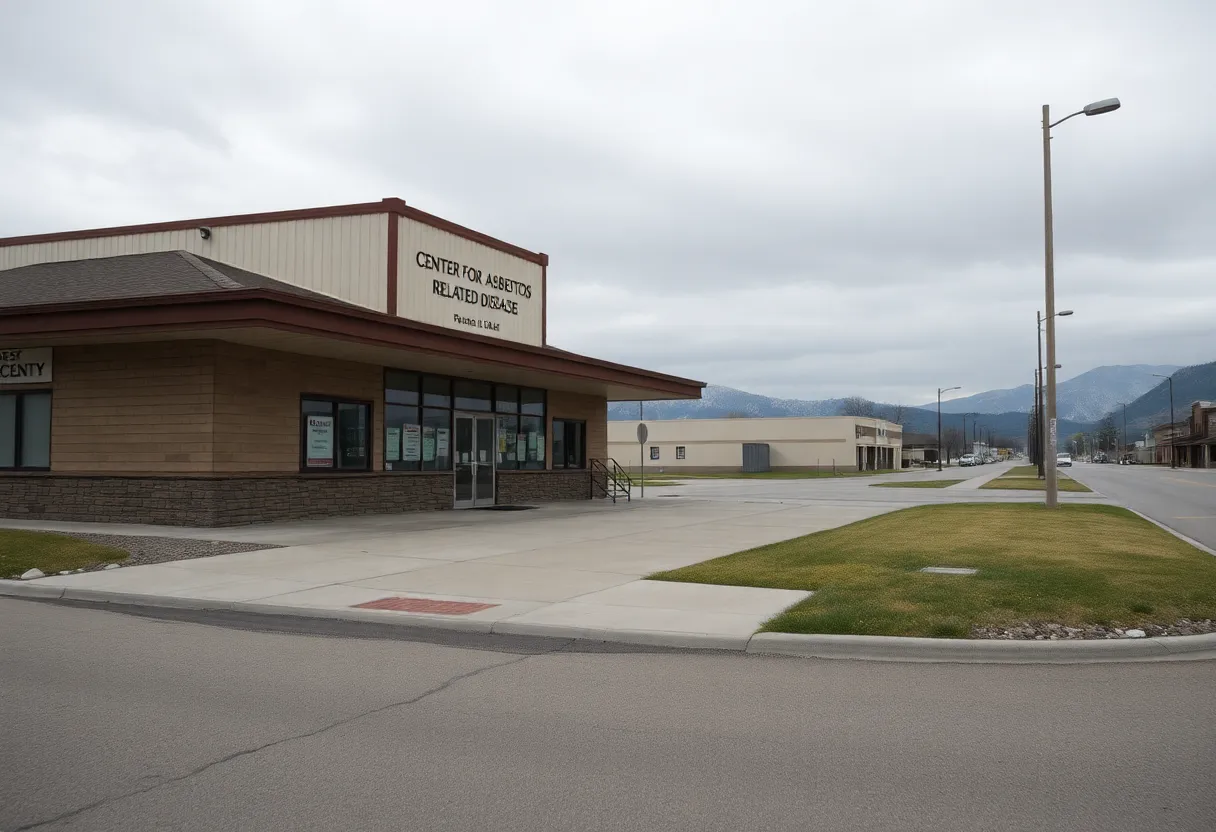News Summary
The abrupt closure of the Center for Asbestos Related Disease (CARD) in Libby raises public health concerns amid legal battles involving BNSF Railway.
Closure of Asbestos Screening Clinic Shocks Libby, Montana Community
The Center for Asbestos Related Disease (CARD), an essential healthcare facility in Libby, Montana, has been abruptly shuttered following a court ruling mandating the seizure of its assets. This closure comes as part of a $3.1 million judgment awarded to BNSF Railway, a company already embroiled in legal accusations surrounding its role in the asbestos crisis that has long plagued this small town.
Impact on Local Residents
Libby, with a modest population of around 3,000 residents, grapples with a tragic legacy of asbestos exposure stemming from the vermiculite mine that operated in the region for decades before its closure in 1990. The mine, notorious for producing harmful asbestos dust, left a trail of health complications, including asbestosis and mesothelioma, afflicting numerous community members.
For over 20 years, CARD has been a beacon of hope for locals suffering from the debilitating effects of asbestos exposure. The clinic has provided vital health screenings, monitoring, and treatment for individuals impacted by the toxic dust that still lingers in the environment. However, its closure raises significant concerns regarding the future of public health in a community already at risk.
BNSF Railway’s Involvement
BNSF Railway has come under scrutiny for its alleged role in exacerbating the pollution in Libby by transporting contaminated materials from the asbestos mine. The company has faced a barrage of lawsuits from victims seeking justice for their suffering. A particularly contentious lawsuit concluded in 2023 when BNSF successfully argued that CARD fraudulently diagnosed patients to claim government benefits. The judgment resulted in the federal government challenging over 2,000 patient diagnoses, of which 337 were deemed fraudulent.
As a result, BNSF was awarded a share of a $6 million judgment related to the lawsuit, asserting it was owed $3.1 million after interest and fees. This financial burden ultimately forced local authorities to act against CARD, culminating in the clinic’s closure as part of the enforcement of the court order.
The Fallout of Closure
Tracy McNew, CARD’s Executive Director, shared alarming concerns regarding the ramifications of the clinic’s abrupt cessation of operations. The implications are profound; limited access to screenings for asbestos-related diseases could directly affect the health of many residents who rely on its services. McNew emphasized the urgency of continued monitoring and treatment for the community, which has already suffered immeasurably due to asbestos exposure.
The closure also puts approximately 19 employees out of work, exacerbating an already strained local economy. CARD had previously filed for bankruptcy in the wake of the fraud judgment but continued operations due to a settlement that kept them afloat. However, the legal demands from BNSF have ultimately overruled any financial reprieve the clinic previously had.
EPA’s Cleanup Efforts and Community Response
The Environmental Protection Agency (EPA) has long recognized the risks associated with the Libby mining site, placing it on the National Priorities List for Superfund cleanup in 2002. However, the damage done by asbestos exposure has left an indelible mark on the community, calling attention to the need for continuing support and representation for those affected.
The Lincoln County Sheriff’s Office acted to enforce the court’s decision, seizing personal and real property belonging to CARD. While the sheriff expressed hope for a resolution that would allow the clinic to reopen, the community remains in limbo.
Additionally, a substantial grant from the Centers for Disease Control and Prevention, critical to CARD’s operations, is under review, further complicating the path forward for the beleaguered clinic.
Future Uncertain
As communities continue to grapple with the fallout from asbestos exposure, the closure of CARD stands as a disturbing reminder of the intersection between corporate accountability and public health. With pending civil lawsuits and complicated legal battles ahead, it remains to be seen what the future holds for both BNSF Railway and the residents of Libby.
The continued struggle for justice and care for those impacted is a poignant chapter in an ongoing narrative, highlighting the need for vigilance, advocacy, and support for affected communities.
Deeper Dive: News & Info About This Topic
HERE Resources
Breakthrough for Pleural Mesothelioma Patients: HITOCH Procedure Shows Promise
The Alarming Rise of Oropharyngeal Cancer: Is Oral Sex the New Smoking?
Revolutionary Lung Bus Program Launches to Combat Dust Diseases in Regional NSW
Wrestling Star EJ Nduka Becomes a Free Agent After AEW Contract Expiration
Former AEW Star EJ Nduka Becomes a Free Agent Following Contract Expiration
New Horizons for EJ Nduka as AEW Contract Expires
Mesothelioma and Asbestos Claims on the Rise: Sokolove Law Offers Help
Malignant Pleural Mesothelioma: A Silent Killer
Tragic Asbestos Link: Family Seeks Answers in Wake of Loss
Tragic Car Meet Crash Claims Life of Young Driver in Wixams



















